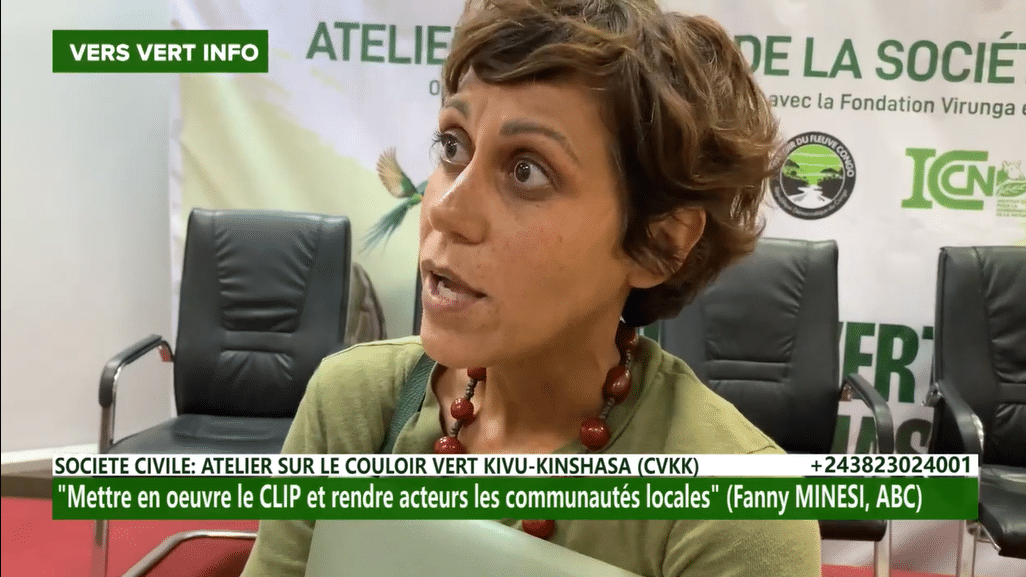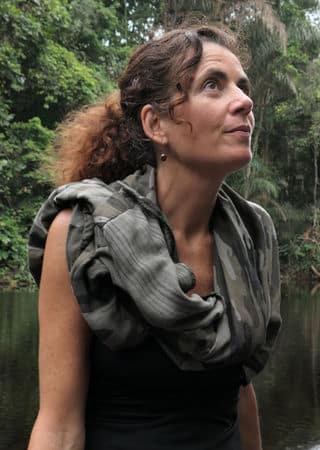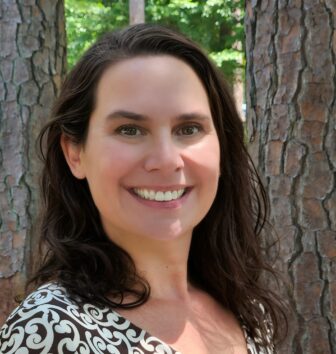ABC Director sees promise and pitfalls in massive project
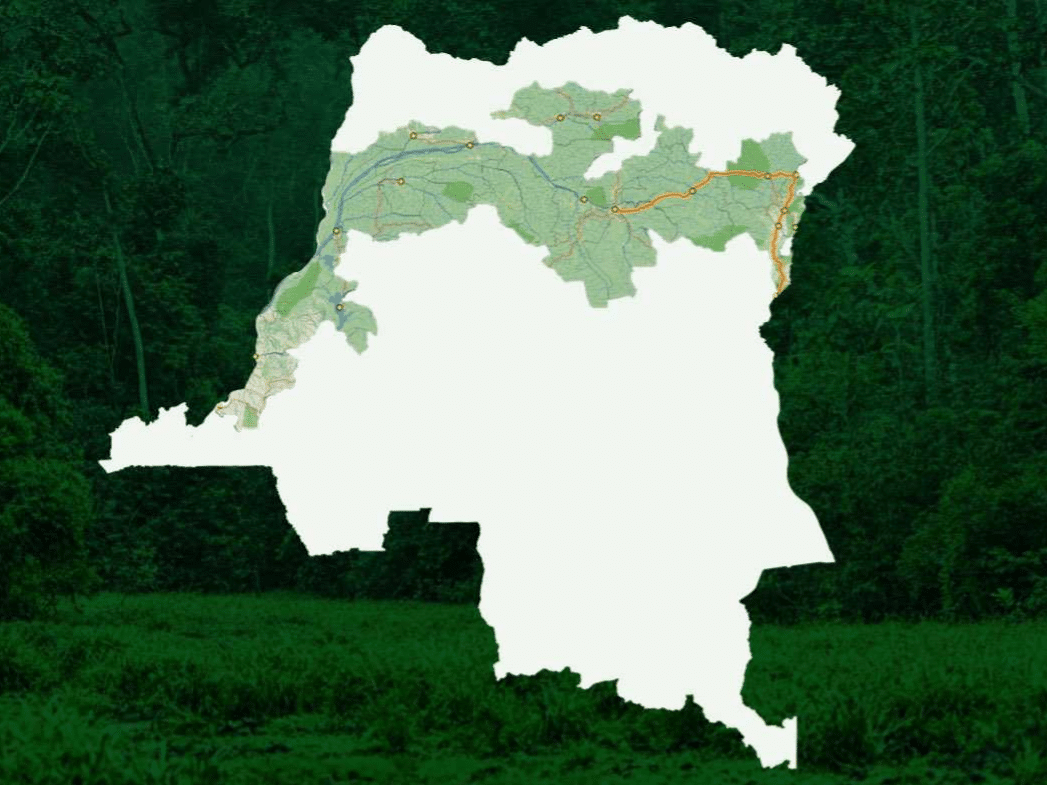
A development project of unprecedented scale is being launched in the Democratic Republic of Congo: the Kivu–Kinshasa Green Corridor, an ecological zone linking the east and west of the country, presented as one of the largest protected forest corridors in Africa. It covers 550,000 square kilometers, taking in huge swaths of primary forests and carbon-rich peatlands.
During a national workshop organized by Congolese environmental civil society on Oct. 9, 2025, discussions around the Kivu-Kinshasa Green Corridor raised key questions.
For Fanny Minesi, General Director of Friends of the Bonobos of Congo (ABC), a central questions are: “Who will benefit from this green corridor? How can we ensure that this project benefits local communities and indigenous peoples?”
The conservation project holds great promise: to preserve the tropical forests of the Congo Basin, protect the unique biodiversity they harbor—including the bonobo—and contribute to the global fight against global warming. Expectations are high that the green corridor will also become a driver of territorial development and ecological equity, and not a mechanism reserved for a few economic actors.
“One concern is that communities may not have projects eligible for tax incentives,” Minesi said. “And so one fear is that the very design of the projects encouraged by this corridor may not be conceived with communities in mind. We must ensure that the private sector, focused on profit, is on equal footing with initiatives coming from our cooperatives and associations.”
“Our role, as civil society, is to ensure that we go beyond political rhetoric and that the ambitions of the green corridor are beneficial for the development of our territories, our provinces, and our country as a whole,” she added.
ABC’s experience co-managing the Ekolo ya Bonobo Community Reserve in Équateur Province shows that it is possible to protect the forest while involving local residents; communities living near and inside of Ekolo forests are consulted, empowered, and self-directing and they participate in the reserves day-to-day management.
Without this direct participation, large conservation projects risk becoming distant promises, benefiting intermediaries more than the populations concerned, she said.
